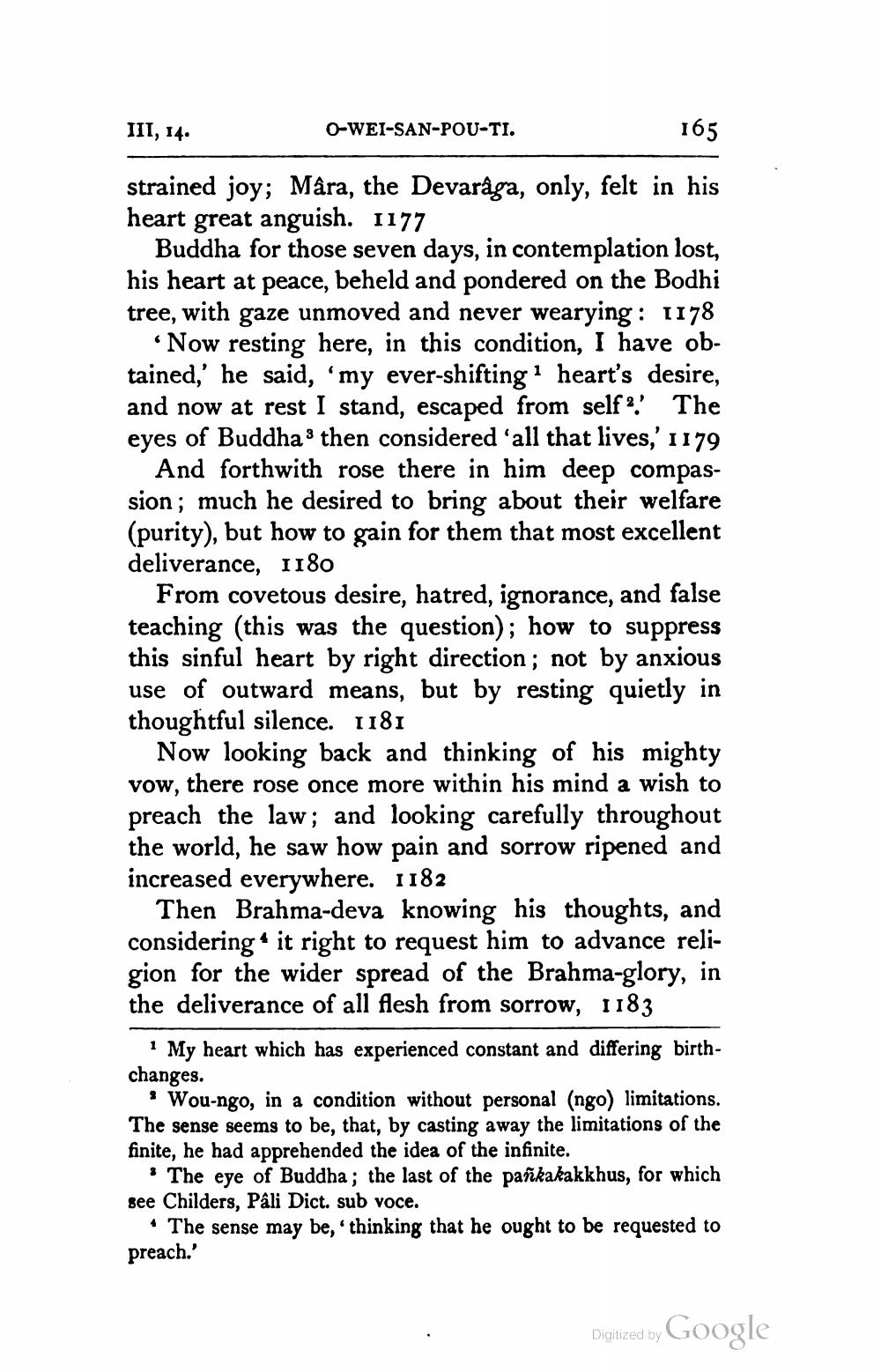________________
III, 14.
O-WEI-SAN-POU-TI.
165
strained joy; Mâra, the Devaraga, only, felt in his heart great anguish. 1177
Buddha for those seven days, in contemplation lost, his heart at peace, beheld and pondered on the Bodhi tree, with gaze unmoved and never wearying : 1178
Now resting here, in this condition, I have obtained,' he said, 'my ever-shifting heart's desire, and now at rest I stand, escaped from self?.' The eyes of Buddha' then considered 'all that lives,' 1179
And forthwith rose there in him deep compassion; much he desired to bring about their welfare (purity), but how to gain for them that most excellent deliverance, 1180
From covetous desire, hatred, ignorance, and false teaching (this was the question); how to suppress this sinful heart by right direction; not by anxious use of outward means, but by resting quietly in thoughtful silence. 1181
Now looking back and thinking of his mighty vow, there rose once more within his mind a wish to preach the law; and looking carefully throughout the world, he saw how pain and sorrow ripened and increased everywhere. 1182
Then Brahma-deva knowing his thoughts, and considering it right to request him to advance religion for the wider spread of the Brahma-glory, in the deliverance of all flesh from sorrow, 1183
1 My heart which has experienced constant and differing birthchanges.
• Wou-ngo, in a condition without personal (ngo) limitations. The sense seems to be, that, by casting away the limitations of the finite, he had apprehended the idea of the infinite.
The eye of Buddha; the last of the pañkakakkhus, for which see Childers, Pâli Dict. sub voce.
* The sense may be, thinking that he ought to be requested to preach.'
Digitized by Google




